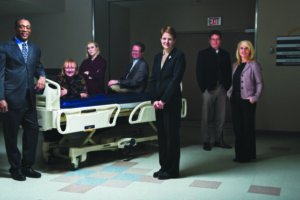Research Centres and Groups

Centre for Information Technology, Organizations, and People (CITOP)
Director: Gerald Grant

Centre for Research on Inclusion at Work (CRIW)
Director: Angela Dionisi
Associate Director: Daniel Gulanowski

Professional Accounting Research Group (PARG)
Director: François Brouard

Sprott Centre for African Research and Business (SCARAB)
Co-directors: Troy Anderson and Fred Olayele

Sprott Centre for Social Enterprises (SCES)
Director: François Brouard

Centre for Sustainable Operations and Innovation (CSOI)
Director: Aaron Nsakanda

Groupe de recherche sur l’industrie de l’humour (GRIH)
Director: François Brouard